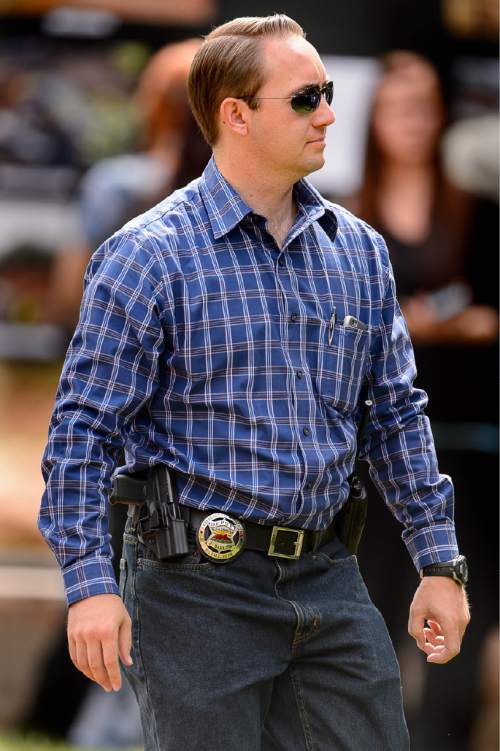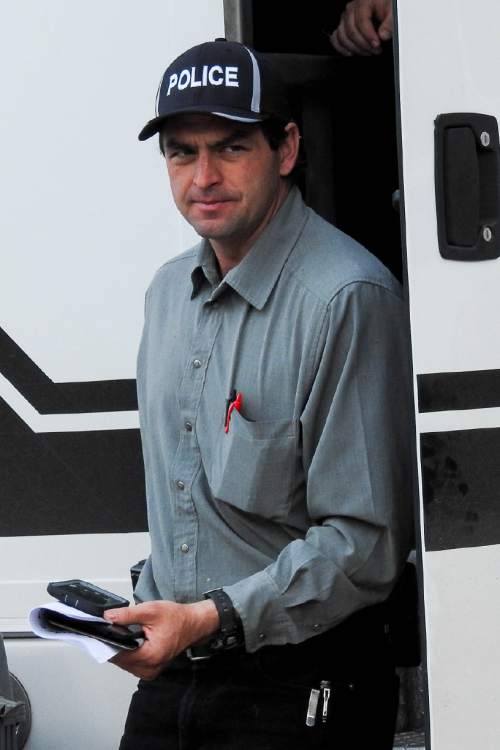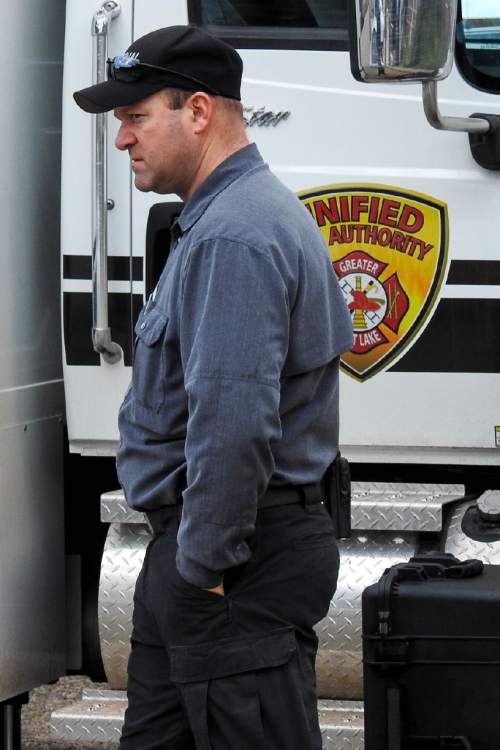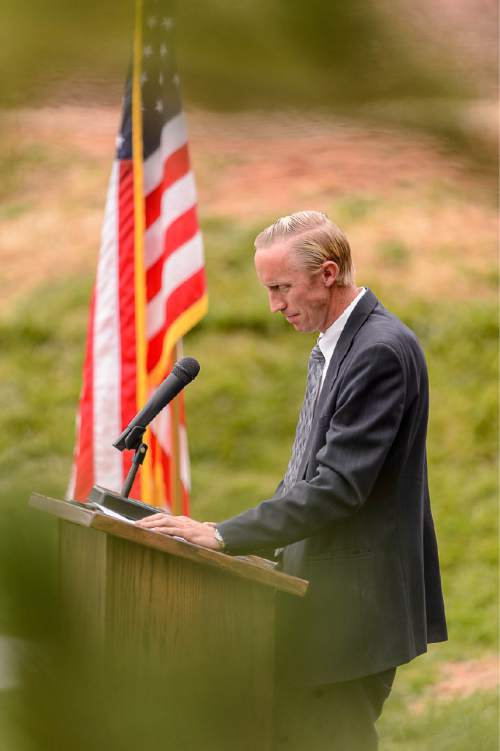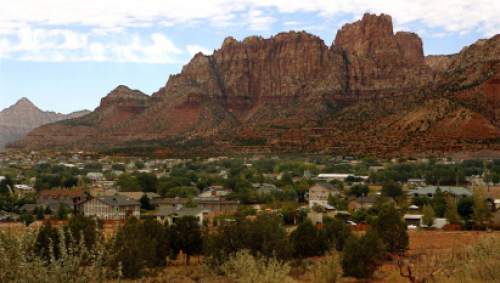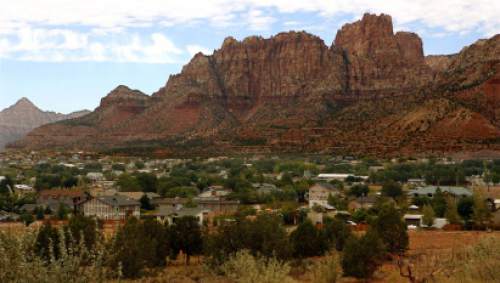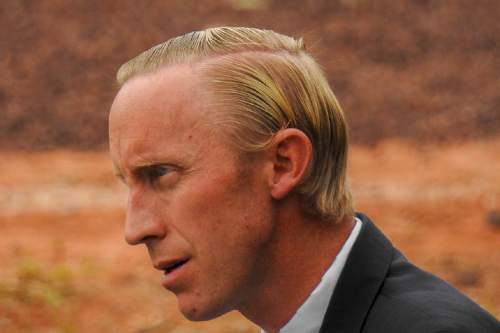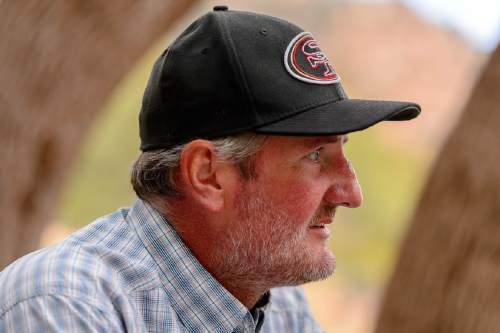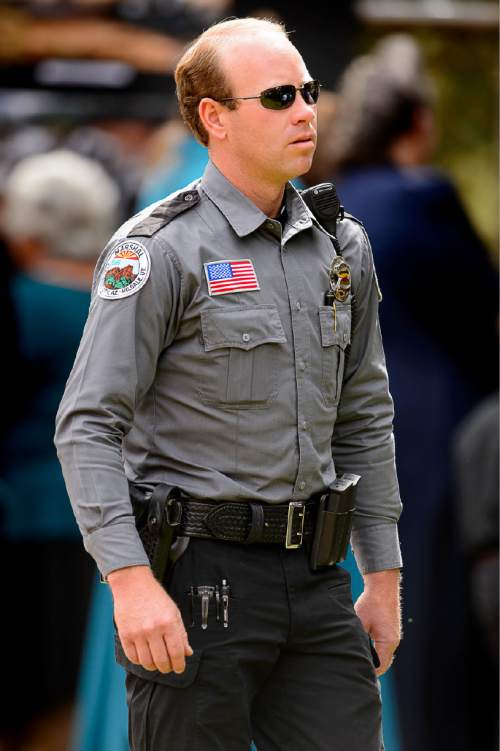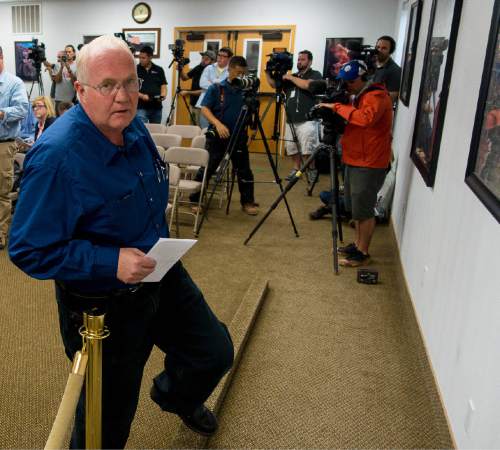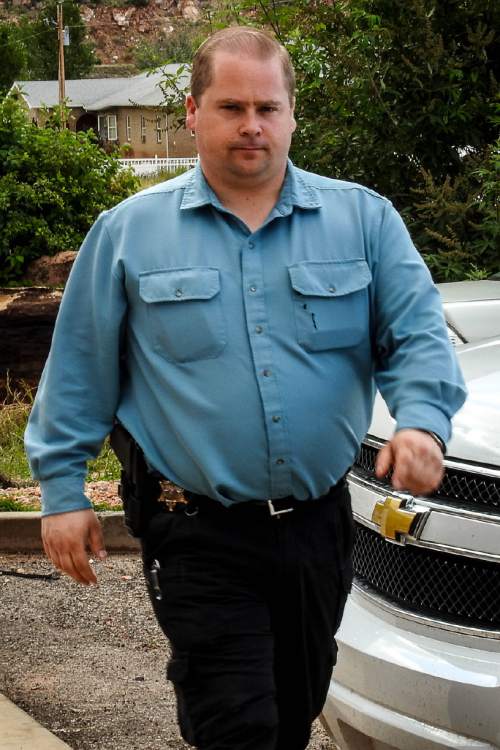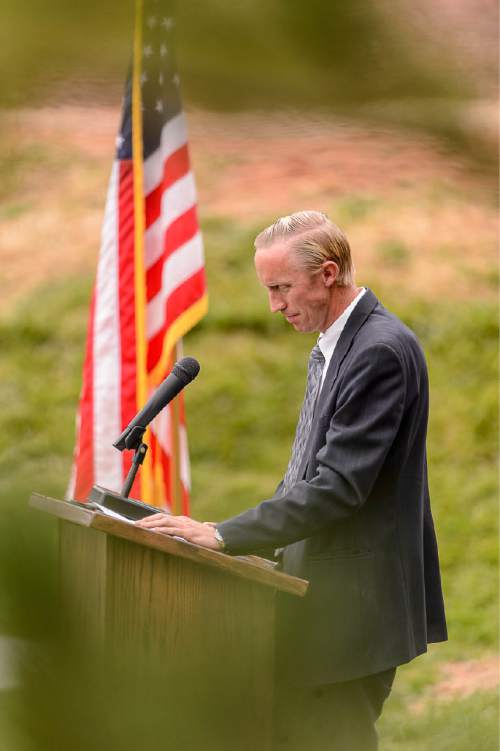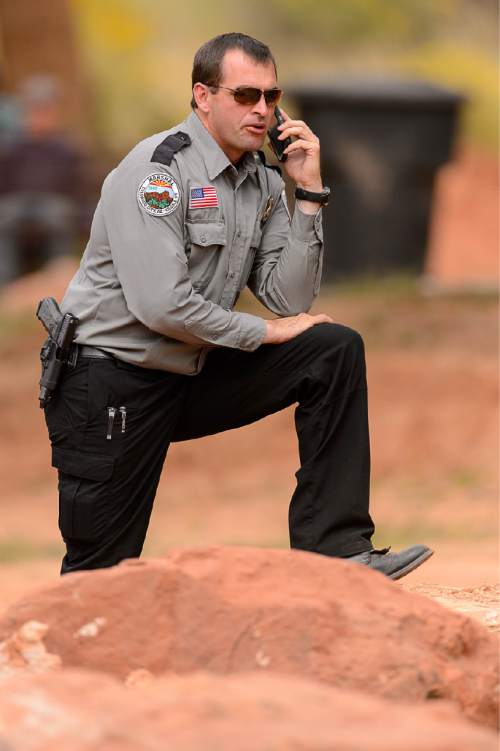This is an archived article that was published on sltrib.com in 2016, and information in the article may be outdated. It is provided only for personal research purposes and may not be reprinted.
The U.S. Department of Justice lawsuit against Hildale, Utah, and Colorado City, Ariz., goes to trial Tuesday in Phoenix, and there are some specific things that Colorado City resident Margaret Cooke wants out of it.
For one thing, she wants a judge to order Colorado City to allow parcels to subdivide the way other towns do.
The other thing Cooke wants goes to the heart of the lawsuit: She wants Hildale and Colorado City, collectively known as Short Creek, to hire municipal employees and police officers who are not members of the polygamous Fundamentalist Church of Jesus Christ of Latter-Day Saints.
"We then get our freedom from the bondage of the FLDS religion," Cooke said. "Basically, the whole government is FLDS and they want to keep us from living here peacefully."
No one denies that the Short Creek municipal governments are filled with FLDS followers. The issue at the trial is what people have complained and argued about for a century: whether those municipal governments discriminate against people who do not follow the church and its imprisoned leader, FLDS President Warren Jeffs.
Neither Jeffs nor the church is a party in the case. Yet the trial will put the towns up against the one group that consistently defeats anything FLDS — juries.
While the FLDS and its members have had some successes in front of judges and appeals courts during the past decade and a half, jurors in criminal and civil trials have consistently delivered guilty or adverse rulings, whether it be the Texas trials that convicted Jeffs and 10 of his followers on sex abuse and bigamy charges, or the civil jury in Phoenix in 2014 that ordered Hildale and Colorado City to pay $5.2 million to a couple denied utility services for five years. All sides later settled the lawsuit for $3 million.
Blake Hamilton, an attorney representing Hildale, acknowledged the problem during a recent interview. In those previous trials, the prosecutors or plaintiffs piled on as many unsavory topics as they could — from polygamy to underage marriages to the eviction of boys and men to questionable use of public money — to try to make the FLDS look bad.
Those topics are fair game at this latest trial — so long as they relate to the discrimination allegations — and Hamilton worries they will prejudice the jury.
"The biggest concern I have is that this case is going to be decided by people's bias against the FLDS," Hamilton said, "and not because of supposed acts of discrimination."
Hamilton and Colorado City's attorney, Jeff Matura, will argue that while Utah and Arizona removed the police powers of some Short Creek marshals almost a decade ago, there has been no pattern of discrimination. If there have been isolated cases, the defense will argue, they did no harm.
The Justice Department will point to multiple examples of the Short Creek marshals protecting church interests, refusing to investigate reported crimes, and ignoring things such as marriages to underage girls even when another marshal was the groom. Federal attorneys will call former FLDS members, including a former marshal and the former Hildale town manager, to testify about how the towns operated and what was said and decided out of earshot of the public.
That former marshal and town manager, half-brothers Helaman and Vincen Barlow, respectively, testified on the towns' behalf in that 2014 trial. They then left their municipal jobs and confessed to prosecutors they had lied under oath. They have been granted immunity from prosecution in connection with their testimony in this latest trial.
The Justice Department also will tell the jury the history of the towns and the FLDS.
The Short Creek community was established in 1913. Residents continued practicing polygamy even after the mainstream church to which many of them previously belonged, the Salt Lake City-based Church of Jesus Christ of Latter-day Saints, banned it. The FLDS have other tenets, too.
The FLDS adopted belief in a "One Man Rule," in which a prophet has supreme authority over the faithful and can determine whether they reach heaven. Since 2002, that "One Man" has been Jeffs, and much of the Justice Department case is built around conversations and correspondence between him and Short Creek's municipal officials.
The Justice Department plans to show that those elected and appointed officials sought Jeffs' guidance on the towns' business and would do anything to please the FLDS leader and keep intact their own salvations.
If the jury finds a pattern of discrimination, it can award monetary damages. Then Judge H. Russel Holland can order changes in the towns, including a dissolution of the police force and amendments to specific ordinances found to be discriminatory.
Matura said the Justice Department filed its lawsuit in 2012 to "exterminate a religion" it doesn't like.
"We find that very, very dangerous," Matura said, "because it might be the FLDS religion today, and tomorrow it might be my religion or your religion."
Cooke grew up in the FLDS. She left in 1994 at age 35 after an Easter sermon in which one leader asserted men on the priesthood council were guaranteed a higher place in heaven than other followers, even if they didn't live as righteous a life.
Cooke said her husband threw her out of their Colorado City home after she left the faith. Cooke was later able to reclaim that home, but still doesn't have the deed because Colorado City's municipal government won't allow her to subdivide her house from other homes on the parcel.
She said she hopes the trial results in fair laws and treatment in Short Creek.
"I'm talking about making it a community where the government doesn't rule everybody based on religion," Cooke said.
Twitter: @natecarlisle —
Rally Saturday in Short Creek
A rally in support of the plaintiffs in the lawsuit is scheduled for 1 p.m. Saturday at the corner of Township Avenue and Central Street in Colorado City.


